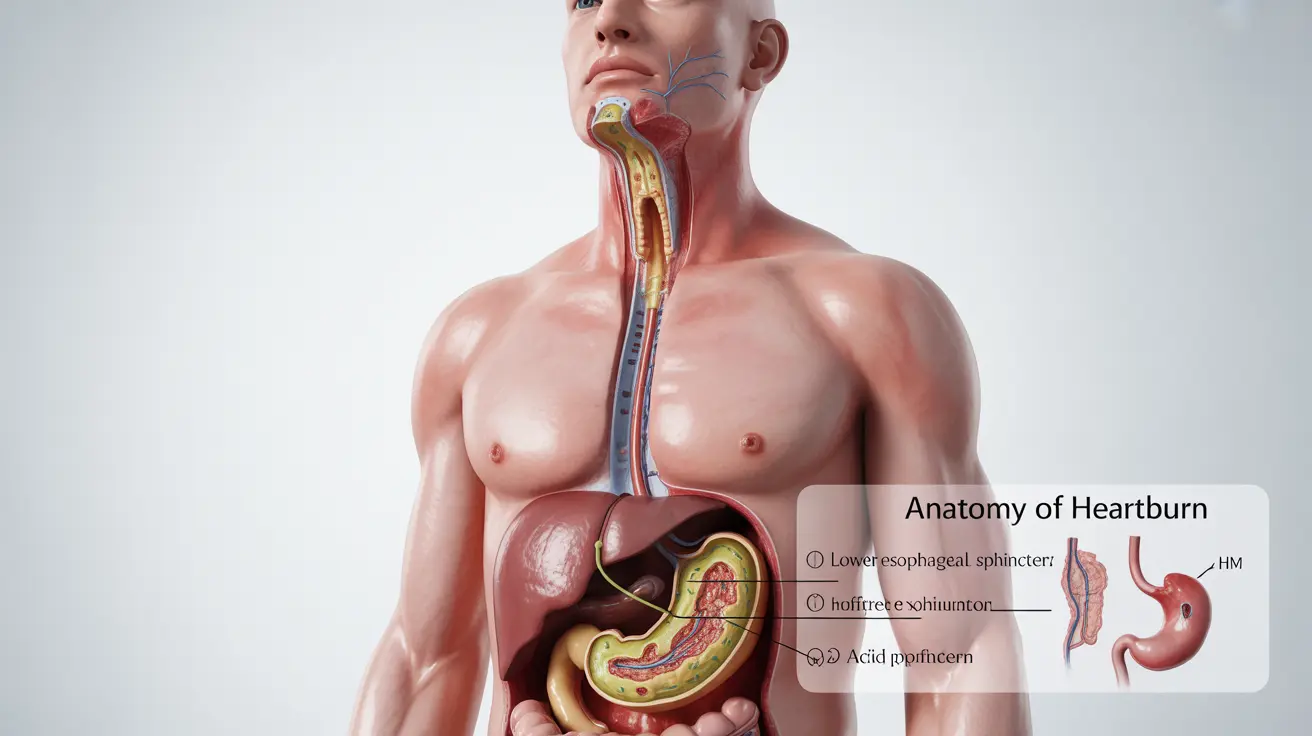Experiencing heartburn after surgery can be both uncomfortable and concerning. This common post-surgical complication affects many patients, particularly those who have undergone bariatric procedures or abdominal surgeries. Understanding how to manage and treat these symptoms effectively is crucial for a smooth recovery process.
Whether you're dealing with occasional discomfort or persistent symptoms, there are various approaches to address post-surgical heartburn. This comprehensive guide will explore the causes, treatment options, and lifestyle modifications that can help alleviate your symptoms.
Understanding Post-Surgical Heartburn
Post-surgical heartburn often occurs due to changes in the digestive system's anatomy or function following an operation. This is particularly common after procedures like sleeve gastrectomy, gastric bypass, or other abdominal surgeries that may affect the lower esophageal sphincter or stomach positioning.
Common Causes of Post-Surgical Heartburn
Several factors can contribute to heartburn symptoms after surgery:
- Changes in stomach anatomy
- Altered digestive processes
- Temporary inflammation
- Medication side effects
- Changes in eating patterns
- Reduced stomach capacity
Effective Treatment Strategies
Medication Options
Various medications can help manage post-surgical heartburn symptoms:
- Proton pump inhibitors (PPIs)
- H2 blockers
- Antacids (when approved by your healthcare provider)
- Prescribed medications specific to your surgical procedure
Lifestyle Modifications
Making certain lifestyle changes can significantly reduce heartburn symptoms:
- Eating smaller, more frequent meals
- Avoiding lying down for 2-3 hours after eating
- Elevating the head of your bed
- Wearing loose-fitting clothes
- Maintaining good posture while eating
Dietary Guidelines for Heartburn Prevention
Following specific dietary recommendations can help minimize heartburn symptoms:
- Choose easily digestible foods
- Avoid spicy, acidic, and fatty foods
- Eat slowly and chew thoroughly
- Stay hydrated between meals
- Monitor portion sizes carefully
Foods to Avoid
Certain foods commonly trigger heartburn and should be limited:
- Citrus fruits and juices
- Tomato-based products
- Chocolate and mint
- Caffeine and carbonated beverages
- Fried or greasy foods
When to Seek Medical Attention
While some heartburn after surgery is normal, certain symptoms warrant immediate medical attention:
- Severe or persistent chest pain
- Difficulty swallowing
- Unexplained weight loss
- Vomiting or regurgitation
- Black or bloody stools
Frequently Asked Questions
What are the common causes of heartburn after surgery, especially bariatric procedures?
Post-surgical heartburn commonly occurs due to anatomical changes in the digestive system, altered stomach capacity, and changes in the lower esophageal sphincter function. In bariatric procedures specifically, the modified stomach size and position can temporarily increase acid reflux symptoms.
How can I get rid of heartburn after surgery using medications and lifestyle changes?
A combination of approved medications (such as PPIs or H2 blockers) and lifestyle modifications like eating smaller meals, staying upright after eating, and avoiding trigger foods can effectively manage post-surgical heartburn. Always consult your healthcare provider before starting any medication.
What dietary habits help reduce heartburn symptoms following surgery?
Effective dietary habits include eating small, frequent meals, avoiding acidic and spicy foods, chewing thoroughly, staying hydrated between meals, and not eating close to bedtime. Following your surgeon's specific dietary guidelines is crucial for optimal recovery.
When should I seek medical help for persistent or severe heartburn after surgery?
Seek immediate medical attention if you experience severe chest pain, difficulty swallowing, persistent vomiting, unexplained weight loss, or black/bloody stools. These symptoms may indicate complications requiring prompt medical evaluation.
Are there surgical options to fix ongoing heartburn after bariatric surgery like sleeve gastrectomy?
Yes, revision surgery or additional procedures may be considered for severe, persistent heartburn that doesn't respond to conservative treatments. However, this is typically considered only after exhausting other treatment options and requires careful evaluation by your surgical team.




